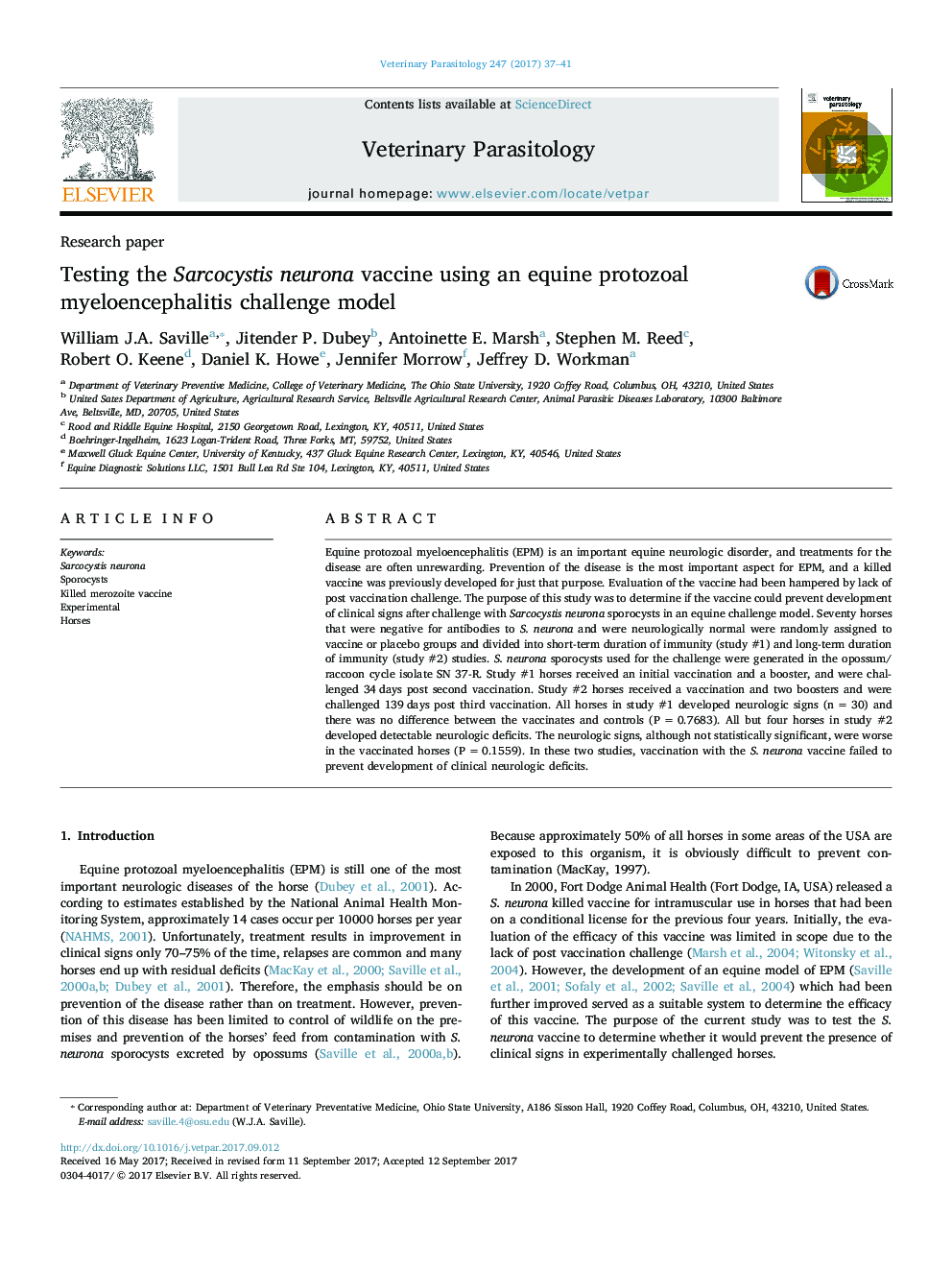| Article ID | Journal | Published Year | Pages | File Type |
|---|---|---|---|---|
| 5545523 | Veterinary Parasitology | 2017 | 5 Pages |
Abstract
Equine protozoal myeloencephalitis (EPM) is an important equine neurologic disorder, and treatments for the disease are often unrewarding. Prevention of the disease is the most important aspect for EPM, and a killed vaccine was previously developed for just that purpose. Evaluation of the vaccine had been hampered by lack of post vaccination challenge. The purpose of this study was to determine if the vaccine could prevent development of clinical signs after challenge with Sarcocystis neurona sporocysts in an equine challenge model. Seventy horses that were negative for antibodies to S. neurona and were neurologically normal were randomly assigned to vaccine or placebo groups and divided into short-term duration of immunity (study #1) and long-term duration of immunity (study #2) studies. S. neurona sporocysts used for the challenge were generated in the opossum/raccoon cycle isolate SN 37-R. Study #1 horses received an initial vaccination and a booster, and were challenged 34 days post second vaccination. Study #2 horses received a vaccination and two boosters and were challenged 139 days post third vaccination. All horses in study #1 developed neurologic signs (n = 30) and there was no difference between the vaccinates and controls (P = 0.7683). All but four horses in study #2 developed detectable neurologic deficits. The neurologic signs, although not statistically significant, were worse in the vaccinated horses (P = 0.1559). In these two studies, vaccination with the S. neurona vaccine failed to prevent development of clinical neurologic deficits.
Related Topics
Life Sciences
Agricultural and Biological Sciences
Animal Science and Zoology
Authors
William J.A. Saville, Jitender P. Dubey, Antoinette E. Marsh, Stephen M. Reed, Robert O. Keene, Daniel K. Howe, Jennifer Morrow, Jeffrey D. Workman,
